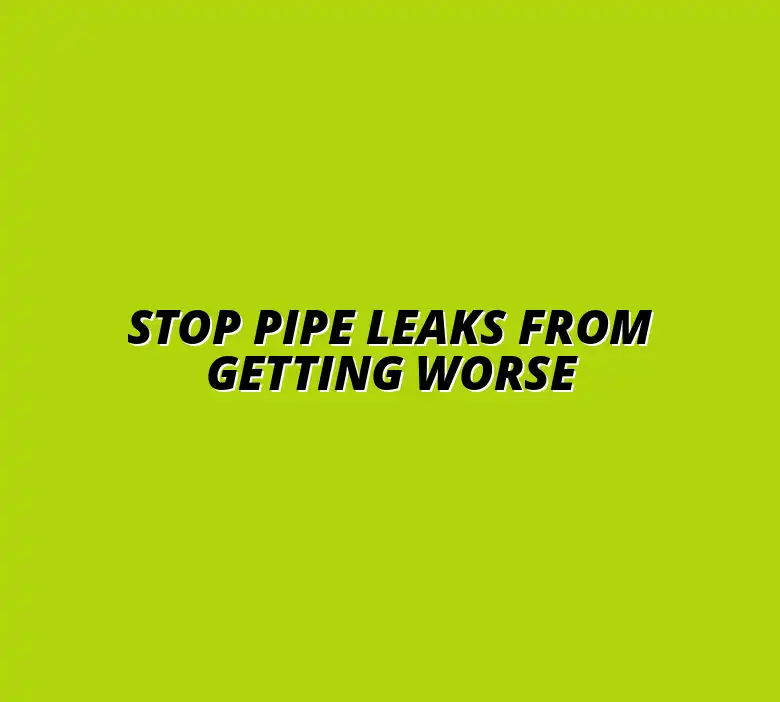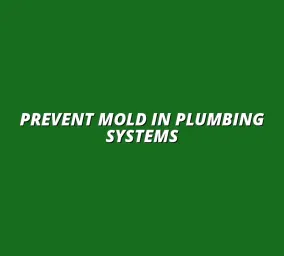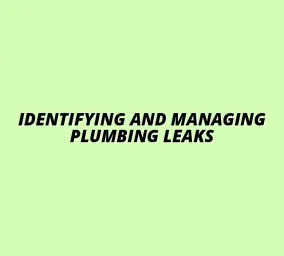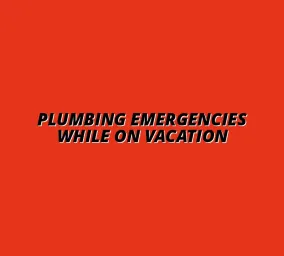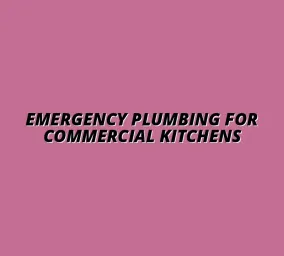Stop Pipe Leaks From Getting Worse
Understanding the Consequences of Emergency Pipe Leaks
Emergency pipe leaks can create a lot of problems, not only for your home but also for your wallet. When water starts to escape from pipes, it can lead to big issues like structural damage and health risks. Understanding the consequences of these leaks is essential to prevent them from causing further harm.
By recognizing the signs of a pipe leak early, you can take action to minimize damage. It's important to know what to look for and what steps to take when you find a leak. This knowledge can save you a lot of stress and money in the long run!
Recognizing the Signs of a Pipe Leak
Identifying a pipe leak can sometimes be tricky, but there are many indicators that can help you. The sooner you notice these signs, the quicker you can address the situation. Here are some common indicators to keep an eye on:
- Unexplained water puddles in your home or yard
- Sudden increases in your water bill
- Water stains or discolored walls and ceilings
- Unusual sounds of running water when no taps are on
Common Indicators of Water Leaks
If you suspect a leak, it's helpful to look for specific signs that confirm your suspicions. These can include damp spots, peeling paint, or even the smell of mold. It's vital to pay attention to these clues, as they can indicate a more serious issue lurking behind the walls. Learning how to detect hidden pipe leaks at home is a valuable skill.
Additionally, keep an eye on your water pressure. If it's fluctuating without explanation, it might be a sign of a leak. Being proactive about identifying these issues can prevent them from escalating!
Visual and Auditory Clues to Look For
Sometimes a simple glance around your home can reveal problems. Look for wet patches, drips, or even mold growth. These visual signs can help you pinpoint where the leak might be originating from.
Listening closely can also provide valuable information. If you hear a hissing or gurgling sound, it might indicate that water is escaping from a pipe. Paying attention to both visual and auditory clues can help you address leaks before they turn into larger emergencies. Knowing the urgent plumbing emergency warning signs can save you from costly damage.
The Immediate Risks Associated with Pipe Leaks
After a leak has been identified, it's crucial to understand the immediate risks that come with it. Pipe leaks can lead to serious structural damage in your home, making it essential to address them quickly. Here are some of the key risks to keep in mind:
- Damage to floors, walls, and ceilings
- Potential weakening of the foundation
- Increased risk of electrical hazards
Structural Damage to Your Property
Water can weaken the structure of your home over time. This kind of damage may not be visible right away, but it can lead to costly repairs later on. Wet wood can rot, and walls can start to warp, compromising the integrity of your house.
Furthermore, if left unchecked, the water can seep into the foundation of your home, leading to even more significant issues. It’s vital that you take immediate action when you spot a leak to prevent these structural problems. Knowing how to repair a burst pipe quickly is crucial in minimizing damage.
Health Concerns from Water Damage and Mold
Water leaks can also lead to health concerns, particularly from mold growth. Mold thrives in damp environments, and when it starts to grow, it can pose serious health risks. Breathing in mold spores can cause respiratory issues and allergic reactions.
Moreover, stagnant water can attract pests, which can lead to additional headaches. Keeping your home dry and leak-free is essential for both your health and your comfort!
Frequently Asked Questions About Emergency Pipe Leaks
What Should I Do If I Can't Locate the Leak?
If you find yourself in a situation where the source of the leak is elusive, don't panic; there are steps you can take to track it down. Start by checking areas that are commonly affected by leaks, such as under sinks, behind appliances, or in the basement. Use your senses—listen for the sound of dripping water and look for signs of moisture on walls or floors.
Consider the following methods to help locate the leak:
- Use a moisture meter: This tool can help you detect hidden moisture behind walls.
- Inspect your water bill: A sudden spike in your water bill might indicate a hidden leak.
- Check your water meter: Turn off all water sources and see if the meter is still moving.
If these tips don’t lead you to the leak, it may be time to call a professional plumber. They have specialized equipment, like thermal imaging cameras, to easily find leaks that are not visible to the naked eye. For plumbing emergencies in the Balti-Triangle/Birmingham area, consider contacting a local plumber.
How Can I Prevent Future Pipe Leaks?
Preventing pipe leaks is critical for maintaining the integrity of your plumbing system. Taking proactive measures can save you time, money, and stress in the long run. Here are some effective strategies to consider:
- Regular inspections: Schedule periodic checks of your plumbing system to identify potential issues. Regular bathroom plumbing checks are especially important.
- Insulate pipes: Insulating your pipes can help prevent freezing during cold weather, which can lead to cracks.
- Watch your water pressure: High water pressure can stress your pipes, so consider installing a pressure regulator.
- Know your plumbing: Familiarize yourself with your home’s plumbing layout to quickly identify problems.
By being proactive and aware of your plumbing system, you can significantly reduce the risk of future leaks. Remember, early detection and maintenance can go a long way in protecting your home! Regular maintenance can help prevent plumbing emergencies.
Final Thoughts on Managing Emergency Pipe Leaks
Importance of Regular Plumbing Maintenance to Avoid Emergencies
Regular plumbing maintenance is essential to avoiding unexpected emergencies like pipe leaks. By keeping your plumbing system in good shape, you can catch problems early and prevent costly repairs down the road. Here are some maintenance tips you can follow:
- Flush your drains: Regularly clean out your drains to prevent clogs.
- Inspect joints and fittings: Look for signs of wear or corrosion on pipes. Taking steps to prevent pipe corrosion is key.
- Schedule professional inspections: A plumber can spot potential issues before they become major problems.
Investing time in regular maintenance not only enhances the longevity of your plumbing but also provides peace of mind knowing you’re less likely to experience emergencies.
Creating a Home Emergency Plan for Plumbing Issues
Having a home emergency plan for plumbing issues is a smart step toward safeguarding your property. This plan should outline clear actions to take when a leak occurs and who to contact for help. Here’s what you should include:
- Emergency contacts: List the phone numbers of local plumbers and emergency services.
- Shutting off water supply: Clearly indicate how to shut off the main water valve.
- Documenting plumbing issues: Keep a record of previous repairs and any ongoing concerns.
By having a well-thought-out plan, you can respond quickly to plumbing emergencies, which can help minimize damage and stress. Make sure everyone in your household knows the plan, so you can act fast when you need to!

